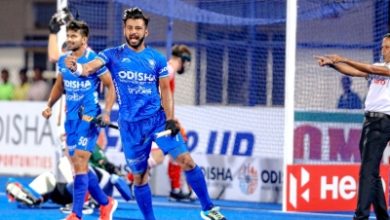Rare Pink Handfish Spotted in Australia

Canberra, Dec 24: A rare walking handfish that is native only to Australia has been spotted for the first time after 22 years on Tasmania’s wild south coast.
The pink handfish was last sighted by a diver off Tasmania in 1999 and has only been seen four other times, reports BBC.
“This is an exciting discovery and offers hope for the ongoing survival of pink handfish as clearly they have a wider habitat and distribution than previously thought,” said lead researcher and marine biologist Neville Barrett, an Associate Professor at the University of Tasmania.
It was assumed that the pink handfish lived in waters between 15 to almost 40 meters deep off Tasmania’s east coast — but this time the fish was found at 120 meters.
As the name goes, the species has over-sized “hands” on which they “walk” along the seabed in addition to swimming.
Pink handfish is one of 14 types of handfish seen around Tasmania, the island south of the Australian mainland.






